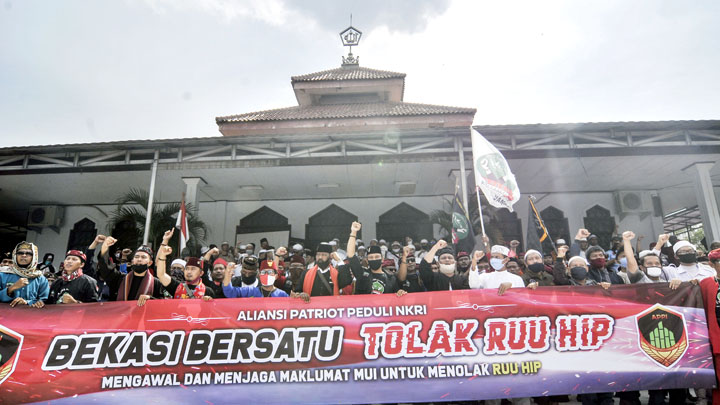An Ideological Battle
Tuesday, June 23, 2020
arsip tempo : 174646759838.

BEFORE a limited cabinet meeting was held at Merdeka Palace on the morning of Tuesday, June 16, Ma’ruf Amin spoke in private with President Joko Widodo. For about 20 minutes, the Vice President talked about a number of Islamic organizations which had come out against the Pancasila Ideology Guidelines (HIP) Bill. Pancasila, or the Five Principles, is the Indonesian state ideology. “It turned out that the President has the same concerns
...
Subscribe to continue reading.
We craft news with stories.
 For the benefits of subscribing to Digital Tempo, See More
For the benefits of subscribing to Digital Tempo, See More








